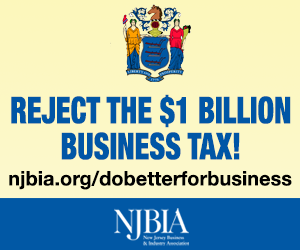Ahead of NJ Transit Budget Hearing, Activists Flyer 35+ Bus & Train Stops Driving Calls to Legislators to Support Millionaires Tax
Ahead of NJ Transit Budget Hearing, Activists Flyer 35+ Bus & Train Stops Driving Calls to Legislators to Support Millionaires Tax
STATEWIDE – Ahead of legislative hearings on state funding for New Jersey Transit, dozens of activists and advocates flyered at 35 bus & train stops in 30 communities around the state, urging commuters to call their legislators in support of a millionaires tax.
“Gov. Christie paid for tax cuts for millionaires and corporations with deep cuts to New Jersey Transit,” said Ray Greaves, chair of Amalgamated Transit Union New Jersey State Council. “If legislators are serious about wanting to restore bus and train service and keep fares down, they need to get on board with a millionaires tax now.”
The coalition flyered at highly-trafficked bus and train stops in Elizabeth, Bergenfield, New Milford, Towaco, New Brunswick, Long Branch, Red Bank, Metuchen, Woodbridge, Iselin, Newark , Collingswood, Teaneck , Hoboken, Wood-Ridge, Madison, Hackensack, Fanwood, Mountain, South Orange, Maplewood, Bloomfield, Hazlet, East Orange, Millburn, North Edison, Millburn, Montclair, Union Township, Linden, and Upper Montclair.
“It’s time for New Jersey legislators to say whose side they’re on,” said Sue Altman, state director of New Jersey Working Families. “Is it 20,000 millionaires, or the million people who ride New Jersey Transit buses and trains every day? To really get New Jersey moving again, we need a millionaires tax.”
Former Gov. Chris Christie cut state aid to NJ TRANSIT by more than 90 percent, while at the same time cutting taxes for people making $400,000 per year and pledging $11 billion in tax cuts to profitable and politically connected corporations through the Economic Development Authority. Those cuts led to a staggering 36% fare increase as well as declining service.
“A stronger and fairer New Jersey means enacting a smart combination of fiscal reforms and revenue generating strategies as we transition to a clean energy economy in coming years. I’m proud to advocate for tax fairness and for asking the wealthiest among us to pay their fair share, as my family and millions like us already do,” said Christine Clarke, 26th District State Assembly candidate.
Gov. Murphy has proposed a second annual increase in New Jersey Transit funding. The proposed FY 2020 budget pays for many of its priorities with a millionaires tax that would raise $447 million in new revenue.
“Our Revolution Hazlet supports a millionaire’s tax because our society has become unfairly skewed towards those who already have inheritances or successful careers,” said Elly Faden of Our Revolution Hazlet. “Nowadays, students have more debt, healthcare is not provided by employers, and the average person risks death or bankruptcy due to the inequities. That is part of the Our Revolution platform. And, in New Jersey, It is time for millionaires to step up like the rest of us, and pay their fair share of taxes.”
Democratic legislators passed a millionaires tax five times during the Christie Administration, but each time the measure was vetoed by the governor. Many of the same Democratic legislators who voted for a millionaires tax repeatedly under Chris Christie have so far refused to back Murphy’s proposed millionaires tax.
“SOMA Action thanks John McKeon, Richard Codey, and Mila Jasey for their continued support of a REAL Millionaire’s Tax in NJ,” said Rebecca Scheer of SOMA Action. “LD27 has the most millionaires of any district in the state, and the majority of our district supports this tax, because it is fiscally sound and responsible policy. We thank our legislators for listening to their constituents, and we urge the rest of the Democratic legislature to follow their example!”
An overwhelming 72 percent of voters support the measure according to a survey by Rutgers Eagleton. That includes 90 percent of Democratic voters.
“During this transit week, we’ve talked to teachers worried about their pensions, cab drivers hustling at their second jobs, small business owners barely getting by, hard hats, commuters – working people across New Jersey struggling to make ends meet while millionaires get tax breaks,” said Anna-Marta Visky of Our Revolution-Monmouth. “It’s time for our legislators to listen to the needs of the many instead of protecting the privileges of the few!
Analysis from New Jersey Policy Perspective shows that working New Jerseyans pay a greater share of their income in taxes than the state’s wealthiest 5 percent. That’s especially true after the Trump tax cuts, which were skewed towards the wealthy and gave the average person making more than $1 million per year a $21,000 tax cut. A recent report from Moody’s suggests that changes to the state and local tax deductions included in the bill have not prompted people to leave the state.
“It’s unconscionable that NJ won’t pass a Millionaires Tax to properly fund NJ transit yet can give away billions of dollars to companies for fraudulent tax credit applications,” said Justin Goldman of Our Revolution Essex. “NJ residents shouldn’t suffer because a handful of folks enjoy corporate kickbacks. The time for a millionaires tax is long overdue.”
Participants included representatives from the Amalgamated Transit Union, New Jersey Working Families, Our Revolution Essex, Our Revolution Monmouth, Our Revolution Hazlet, Our Revolution Collingswood, SOMA Action, Westfield 2020, and East Orange Progressive Democrats.
“Raritan Valley Line commuters have suffered from poor service for years,” said Lillian Duggan, co-founder of Westfield 20/20. “A tax on those who make more than a million dollars a year is fair and just, and will help restore sanity to the lives of all New Jersey commuters.”
Better Choices for New Jersey is a coalition of more than fifty community, labor, environmental, faith-based, student, and grassroots organizations fighting for a fair budget that meets the needs of the many, not the few. It leads the fight for a millionaires tax, and for bringing accountability, transparency, and oversight to New Jersey’s corporate subsidy programs.
###









